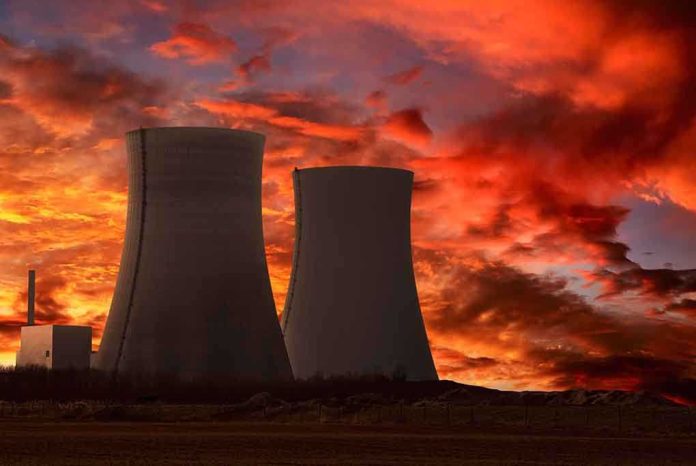
Imagine the chaos if weapons-grade uranium fell into the wrong hands, yet another bold attempt was thwarted in Georgia.
At a Glance
- Two men arrested in Georgia for attempting to sell weapons-grade uranium.
- The uranium sale was valued at a staggering $3 million.
- Georgia remains a hotbed for nuclear material smuggling.
- International cooperation is crucial to tackling this ongoing threat.
A Troubling Legacy of Nuclear Smuggling
Georgia, a small nation at the crossroads of Europe and Asia, has once again emerged as the center of a nuclear smuggling plot. On July 17, 2025, authorities announced the arrest of two men attempting to sell weapons-grade uranium in the Black Sea port city of Batumi. This incident is not an isolated case but part of a troubling legacy that dates back to the collapse of the Soviet Union, which left many nuclear facilities and materials inadequately secured. Criminal networks have been exploiting these vulnerabilities for decades.
This arrest highlights the ongoing challenges faced by Georgian authorities in securing their borders against the trafficking of radioactive substances. Despite international efforts to equip the nation with better border security measures, the persistence of these incidents underscores the complexity of the issue. The Caucasus region, strategically located between Russia, Turkey, and Iran, continues to be a significant transit point for smuggling routes, including those for nuclear materials.
The Arrest and Its Implications
On the day of the arrest, Georgian authorities successfully intercepted and neutralized the plot at an early stage, preventing the uranium from being sold for $3 million. The suspects, one Georgian and one foreign national, are now in custody and face up to 10 years in prison for illegal handling of nuclear material. The uranium, described as a “radioactive chemical element emitting alpha and gamma radiation,” posed a potential threat of mass casualties if weaponized.
While this arrest is a victory for Georgian law enforcement and their international partners, it also serves as a stark reminder of the ongoing risk posed by unsecured radioactive materials in the region. The possibility of extremist groups acquiring such materials for use in “dirty bombs” or other terrorist activities is a constant concern for governments worldwide. The international community must remain vigilant and continue to support efforts to bolster nuclear security in Georgia and neighboring states.
The Global Response and Future Challenges
The international response to this incident will likely involve increased cooperation and investment in nuclear security infrastructure across the Caucasus region. Countries such as the United States and those within the European Union, along with organizations like the International Atomic Energy Agency (IAEA), play critical roles in providing technical support, intelligence sharing, and funding for border security enhancements.
However, the situation remains precarious. The demand for nuclear materials from criminal and extremist groups persists, and the region’s porous borders continue to provide opportunities for smuggling. The Georgian authorities must work closely with their international partners to address these vulnerabilities and ensure that their nation does not become a gateway for nuclear proliferation.
Towards a More Secure Future
As the world grapples with the threat of nuclear terrorism, incidents like the one in Georgia emphasize the need for robust regional cooperation and legal frameworks to deter and prosecute nuclear trafficking effectively. While recent arrests demonstrate the effectiveness of law enforcement, they also reveal systemic weaknesses that require comprehensive solutions.
Security analysts have long warned of the risks associated with the Caucasus region’s legacy Soviet stockpiles and porous borders. It’s time for a concerted effort to close these gaps and ensure the safety of the local population and the international community. The stakes are too high to allow complacency in the face of such a grave threat.







